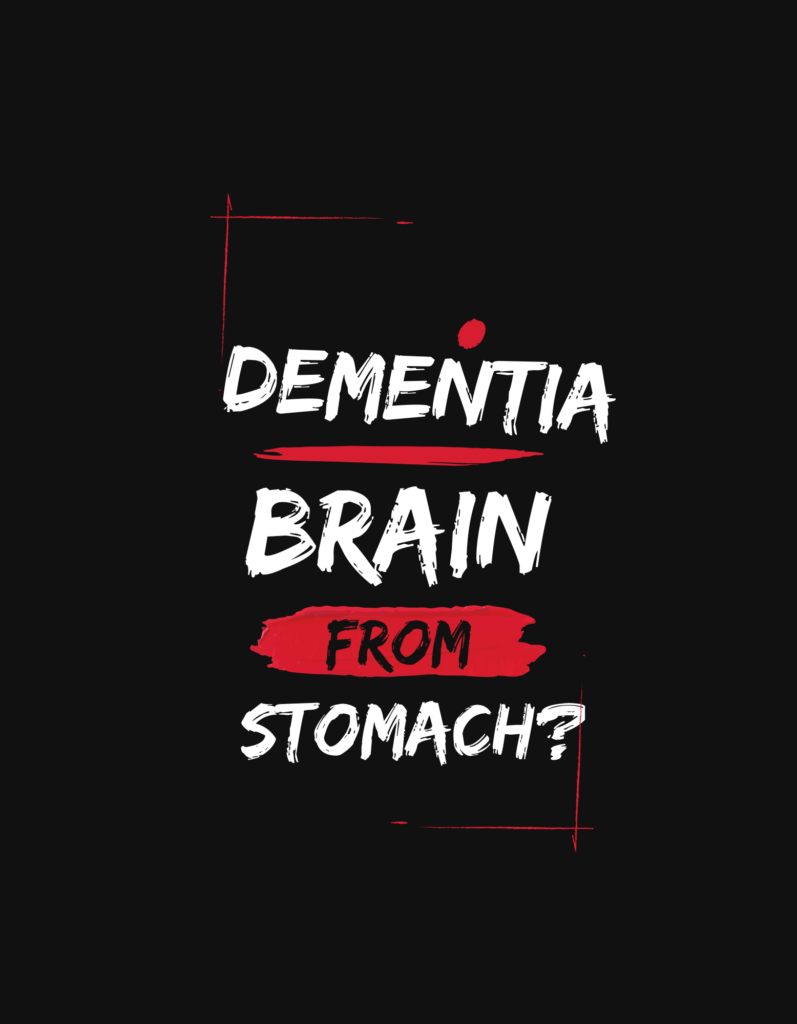Summary
Can there be a link between gut health and dementia? Maintaining good health isn’t just about what’s happening in your stomach it could also be closely tied to the health of your brain. Let’s dive into the fascinating connection between gut health and dementia, unraveling the story in simple words.
On this page
Top Memory Supplements
 | Benefits of taking Supplements | |
|---|---|---|
| NATROL COGNIUM | * Keeps your mind sharp * Enhances cognitive function | |
| NEURIVA | * Gluten Free * Increase levels of the vital neuroprotein | |
| PREVAGEN | * High Quality ingredients * There are incline and decline positions | |
| EZ MELTS | * Supports mental clarity * Benefits your memory | |

The Microscopic World in Your Stomach:
Picture your stomach as a bustling city filled with tiny living beings called bacteria. These bacteria are not necessarily bad; in fact, some are essential for your well-being. Collectively, they are known as the gut microbiota. Just like a city needs a balance of residents to function smoothly, your stomach needs a balanced mix of bacteria.
The Two-Way Street:
Now, imagine a busy highway connecting your stomach to your brain. This is the gut-brain axis, a communication system between these two vital organs. They send signals to each other, and the messages exchanged can influence your overall health.
The Good and the Bad:
In our stomach city, there are good and bad neighbourhoods. The good bacteria help with digestion, produce essential vitamins, and even communicate with your immune system. On the flip side, too many bad bacteria can cause trouble. This imbalance, known as dysbiosis, is like having too many unruly residents causing chaos in the city.
Inflammation – The Unwanted Fire
Imagine a small fire in one corner of your stomach city. This is what happens when there’s inflammation. Inflammation is your body’s response to injury or infection, and it’s a normal process. However, if this fire keeps burning because of imbalances in your gut, it might spread to other areas, including your brain.
Inflammation’s Journey to the Brain:
The flames of inflammation can travel through the gut-brain highway. When they reach the brain, they might contribute to neuroinflammation—a kind of inflammation specifically in the brain. Neuroinflammation is often linked to various neurological conditions, including dementia.
Microbial Messages
The good bacteria in your stomach are not just silent residents; they actively produce chemicals and compounds. These compounds, like short-chain fatty acids, act as messengers. They can travel through the bloodstream and reach the brain, influencing its function. It’s like your gut bacteria sending postcards with advice to your brain.
When Things Go Wrong
If there’s a disturbance in the stomach city—maybe due to an unhealthy diet, stress, or other factors—the messages sent to the brain might not be so friendly. Instead of helpful advice, the messages could be problematic and contribute to cognitive issues.
The Blood-Brain Barrier – A Protective Wall
Think of the blood-brain barrier as a protective wall between the bloodstream and the brain. It’s like a bouncer at a club, allowing only the right guests to enter. A healthy gut helps maintain this barrier, ensuring that harmful substances stay out of the brain.
However, when the gut is not in good shape, this protective wall might become porous. It’s as if the bouncer is taking a break, and uninvited guests can now enter the brain. This breach can expose the brain to toxins and contribute to the development of neurodegenerative diseases like dementia.
Top 5 things you do to keep your brain in good health?
So, how can you ensure a bustling, harmonious city in your stomach, sending positive vibes to your brain?
1. Diet Matters
Eating a balanced diet with plenty of fibre, fruits, and vegetables is like providing the right fuel for your gut city. It keeps the good bacteria happy and the bad ones in check.
2. Probiotics
They are like superheroes in the gut world. These are beneficial bacteria that you can find in certain foods like yogurt and supplements. They help maintain the balance and contribute to a healthy gut environment.
3. Exercise
Keeping the Streets Clean: Physical activity is like a street sweeper for your gut. It keeps things moving smoothly and supports a diverse community of gut bacteria.
4. Stress Management
Calming the City: Stress is like a storm in your stomach city. Finding ways to manage stress, whether through meditation, hobbies, or a good laugh, can positively impact your gut and, consequently, your brain. I personally use meditation to help calm my mind. I am also ADHD, so meditation really helps me feel comfortable, relaxed and less anxious.
5. Adequate Sleep
Rest for the Workers: Imagine the residents of your stomach city taking a break at night. Quality sleep allows your gut to repair and rejuvenate, contributing to overall well-being. I am employed in a sleep lab and see patients with all sorts of issues. Sleep effects your overall well being.
My final thoughts
The connection between gut health and dementia is a fascinating journey along the gut-brain axis. Your stomach and brain are in constant communication, and what happens in one can significantly impact the other. By taking care of your gut—maintaining a balanced diet, incorporating probiotics, staying active, managing stress, and getting enough sleep—you’re not just promoting digestive health; you’re also nurturing a healthy environment for your brain, potentially reducing the risk of dementia. It’s a holistic approach to well-being that starts in your stomach and resonates throughout your body and mind.
This post may contain affiliate links which means I may receive a commission for purchases made through links. I will only recommend products that I have personally used. Learn more on my privacy policy page.




